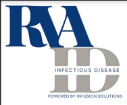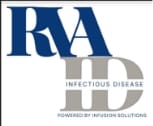Antibody-antiviral conjugates (AACs) are innovative therapeutics that combine monoclonal antibodies with antiviral drugs. The antibody precisely targets viral proteins on infected cells or virus particles, delivering the antiviral agent directly to the site of infection. This targeted approach enhances efficacy and minimizes damage to healthy cells.
Unlike standard antiviral drugs that affect both infected and uninfected cells, AACs improve selectivity and reduce side effects. They are particularly valuable against rapidly mutating viruses like SARS-CoV-2 or influenza, where tailored antibodies can be developed quickly.
AACs also offer hope for chronic infections such as HIV and hepatitis B, which are difficult to eliminate due to viral reservoirs. Targeted delivery may help overcome these barriers and enable more effective, possibly curative treatments.
Investing in AAC research is essential to develop faster, safer, and more precise antiviral therapies—critical tools for managing current infections and responding to future viral outbreaks.


